- Home
- Susan Hill
The Mist in the Mirror Page 4
The Mist in the Mirror Read online
Page 4
In dusting myself off and apologising and making way for him and his tray, in my embarrassment and confusion, I had barely a second in which to glance around Crab Passage. The boy was gone.
So the feeling that I was being watched had been real enough, and perhaps followed too, all over London, else how could he have possibly come across me in this obscure, unmarked alley?
Had the young man with his tray not been standing waiting for me at the top of the shop steps I would have made some attempt to track down the boy’s hiding place, for apart from being bewildered at his abrupt, silent appearances, I was now concerned about his welfare, so ill and ragged did he look.
But I could do no more now. I turned and went behind the youth into the shop and straight up the stairs, past the first floor office and then on up a further rickety flight, holding firmly to the banister, for it was pitch dark. At the top stood a closed door, which we went through into a small lobby, and up to a second door, against which the youth bumped his shoulder.
‘Come.’
I thought the voice was that of a woman, it was so high-pitched.
‘Shove,’ the boy said, and held the door open for me to follow. I realised that he was announcing his own name.
I stepped cautiously forward.
It was an extraordinary room, running, so far as I could make out, the full length of the top of the house, with windows overlooking the rooftops. It was gloomy, the walls were lined with leather-bound books, there were heavy curtains of dark green plush fabric with deep pelmets, and the table and armchairs were draped in it too. An ornate black marble fireplace filled the wall at the far end, over which hung a huge, carved, gilded mirror, and as I glanced into it, I caught the first glimpse of my host, reflected in it. I turned round.
He was seated in a low chair near to the window, his arms, with their podgy little hands, folded over an immense, rotund belly. He had small, piercing eyes, a bald, domed head, and he was very formally dressed, like a lawyer, in an old-fashioned suit with gold watch and chain across the waistcoat.
‘Mr Beamish?’
‘I am, sir.’
A man, yes, but with the high, squeaking voice I had mistaken for that of a woman or even a child.
He did not rise, but gestured to the seat opposite.
‘Shove will be gone presently,’ he said.
‘I had not realised that you were offering me dinner. I am most grateful.’
‘Snecker’s pies.’
‘Mutton,’ Shove said over his shoulder.
He had laid the table, and was now setting out tankards and a jug of ale.
‘I came into the shop some time ago – I even ventured upstairs, but no one was about and no one seemed to hear me.’
‘I heard you.’ His small eyes were upon me. They were cold and his expression complacent, and I saw that he got pleasure from trying to discomfort me. I did not take to him.
‘People come and go. Shove’s about the place. They generally know what they want.’
‘You’ve a remarkable stock. I found much to interest me.’
‘I take it you’ve travelled, Mr Monmouth?’
‘Indeed.’
‘I have not. I let others travel for me.’ He gestured to the books.
‘Right,’ Shove said.
Mr Beamish began to heave himself to his feet and totter over to the dining table – I thought that it might be as far as he ever went. As well as being fat he was short, no more than five feet or so, so that as he moved he seemed to rock backwards and forwards like a child’s toy. Everything about him should have made for cheeriness and jollity of personality but it did not. Sitting down with him at the table, I felt that I wanted to keep him at arm’s length and that there was no warmth or humour, other than of a sarcastic kind, in him. Nevertheless he was hospitable to a stranger, I was hungry, and curious about him and his business, and above all anxious that he should give me as much information as possible on the subject of Conrad Vane.
With the hot mutton pies there were peas, mashed potatoes and gravy and the ale to drink, and Mr Beamish did not speak at all while he ate, but tucked a white napkin under his chin and attacked his food with complete, and vigorous, concentration.
I took the opportunity during the pauses between mouthfuls to glance about me – indeed, I was able to peer, for Mr Beamish was busy concentrating on his food. As well as the books and the heavy furniture and curtains I noticed several peculiar objects, all of them singularly unpleasant. On the sideboard stood a glass dome beneath which was not the usual arrangement of dried flowers or waxen fruit but a curious tree stump or piece of old driftwood of a most twisted and tortured shape, out of which at various points sprouted weird fungoid growths intertwined with one another, the colour of old bone or parchment. There was a shield made of stretched, stained skin, and a tiny shrunken head on a stand, clumps of spongy, lava-like rock and several objects I could not identify, floating in sealed jars of murky liquid.
At the far end of the room stood a handsome pair of globes and, beside them, a map display case.
Mr Beamish sucked down the dregs of his ale, and wiped his little pursed, pink mouth.
‘What set you onto Vane?’ He was looking at me closely.
I said, ‘Many years ago I came upon a book in my Guardian’s collection – we were living in Africa then. I began it for want of anything else to read at the time and could not leave off – it opened up the world to me, places, voyages, and it made mention of various travellers. One of them was Conrad Vane.’
‘What do you know of him?’
‘That he first journeyed across …’
‘No, no, not where, him.’
Beamish had arrived at once at the nub of my reason for being here.
‘Precious little,’ I said at last, ‘I am hoping that you, among others, can tell me much more.’
‘You will find little.’
‘Just the same …’
‘Why?’
I blustered. He was making me feel uncommonly nervous and unsure of myself.
‘I suppose – well, it is simply a task that I have set myself. It attracts me. And I have nothing else to do.’
‘Then you should make it your business to find something,’ he said softly. I stared.
‘Leave be, Mr James Monmouth. That is my advice to you. Leave be.’
‘Why on earth …’
‘Reasons.’
‘Good heavens, man, you are trying to make a dark mystery out of all this.’
‘Not I.’
‘I have already followed in Vane’s footsteps across half the world.’
‘And came alive out of it.’
‘Certainly. Oh, I have been in peril enough but that is the risk the adventurous traveller takes.’
‘Do you know of Catchment? Dawes? Luis van Ray?’
‘A little … not of the last. They were names I heard mentioned in the course of my travels, they had been ahead of me.’
‘And where are they now?’
‘I do not …’
‘Dead, Mr James Monmouth. Dead – or vanished.’
‘As I said, it is a perilous business.’
‘Not in the usual way. They did not die or disappear because they fell among thieves or down a ravine.’
‘I do not understand you.’
‘Leave be.’
‘Mr Beamish …’
‘You’ve travelled. You are safely returned. Your luck held. Don’t tempt fate.’
‘Fate? How? Here in England, in the safety of this snug little island? Here, where I intend to settle, to find a place to live, here where I shall do no more than read and write and diligently pursue my own researches, and where my only adventures will be among gentle hills and downs, and over moorland to the sea? Where I shall travel by rail and on foot? Where I shall talk to those who can inform me and otherwise think my own thoughts? Here where I shall be like an old horse put out to grass?’ I almost laughed in his face.
‘Here,’ he said, ‘h
ere will be the most perilous of all.’
The man, I decided, was mad and the look on my face must have told him that I thought so.
‘No one,’ he said, ‘wants to revive the memory or disturb the shade of Conrad Vane. No one will speak to you of him – no one who could possibly be of any use to you. No one who knows.’
‘Knows what?’
‘What he knows.’
‘This is gibberish.’ I stood. I was angry now. But I thought that I had seen through him. Theodore Beamish wanted to put me off, to frighten me in some way so that I would leave the study of Conrad Vane, his life and work, to someone else – himself.
‘I do not know what nonsense you are trying to fill me with.’
‘Sit down, Mr Monmouth …’
I would not have done so but at that moment there was a peremptory knock on the door and the youth Shove entered, carrying two covered bowls on his tray.
‘Treacle,’ he said, set them down on the cloth and lifted the lids. Pudding and custard sat, steaming and fragrant.
For some moments again we ate in silence save for the scraping of spoons. But I was on edge and still annoyed, particularly at the man’s attempt to unnerve me. I was also puzzled and above all determined. My plan was to research into the life, especially the early years, of Conrad Vane, for I could not write of his explorations without doing so, and I saw no reason why I should be deterred from carrying it out. Besides, for some reason, the man drew me to him.
Eventually, Mr Beamish set down his spoon and leaned back in his chair.
‘Unpleasantness,’ he said, ‘is to put it mildly. Unpleasantness. That is what dogs the memory. Did nothing ever strike you? Did no one talk?’
I began to think back to the places I had visited over the past years connected directly with Vane, villages, town-ships, ancient sites, to the mention I had very occasionally made of him. No, no unpleasantness, as Beamish had it. The most there had been was a kind of blankness, a vague impression gained that Conrad Vane had not been a man remembered, where he was remembered at all, with any particular affection, or whom it was thought right to honour.
‘No,’ I said at last. ‘Nothing.’
‘Yet the leopard does not change its spots.’
‘You hint at some dark deeds perhaps? Did Vane commit any crime?’
For a second, his eyes narrowed and he shifted his fat little body in the chair. I thought that he was going to tell me something, make a revelation, but he did not; he merely said again, ‘Leave be.’
I smiled. ‘I have made my first arrangements. I plan to visit Vane’s old school. I gather there are some papers, letters and so forth and all his travel writings in manuscript in the library. I intend to take my time in consulting them.’
‘You are not a stupid man, Mr Monmouth, not an impulsive young hothead. Why behave as one?’
‘That is to insult a guest. You have been hospitable, Mr Beamish, but …’
‘But you intend to go to hell in your own fashion.’
‘Oh come, man!’
‘It is evil of which I speak, Monmouth, wickedness, things best left concealed, undisturbed. Whoever is touched by Vane suffers.’
‘Mr Beamish, the man is dead.’
‘Ah yes.’
‘Then of what do we speak?’
‘You may ask, you may ask.’
For a split second then, looking into his face, hearing his soft, silken voice in that gloomy room, I was gripped by a cold, dreadful fear. It entered like a splinter of ice going to my heart and I now know that it never truly left me and will not, for the rest of my days. I know that, however vague and odd the tales Beamish was concealing from me, there was some dark truth underlying them, some story of human depravity and misery. Whether he had anything to do with them, whether he had in fact known, or at least met Vane, I could not tell.
Perhaps I could have heeded his words then and put Conrad Vane behind me, and I am sure that it was not mere cussedness and strong will that influenced me. I was not, as Beamish had correctly remarked, a hot-headed young man, I was calm, thoughtful, sober and middle-aged and I wanted a settled and reasonably quiet life. Yet the more he had spoken of Vane, the more fascinated I had become.
But the flash of intense fear I had felt was fleeting and, when it left me, I looked down at the pots on the table, felt my stomach lined and full with warm, comforting food, pie and potatoes, pudding and ale, and the real, straightforward, everydayness of those things banished into dreamland any hints of other, more shadowy and sinister matters.
The thought of Snecker’s mutton pies and ale caused me to dismiss Mr Beamish’s warnings and, indeed, to laugh at them.
I thanked him for the dinner, bade him good-day and left. Once again, Shove was nowhere to be seen and the shop was dark and deserted.
I went out quickly and down the steps onto the cobbles, now slippery with rain, of Crab Passage.
CHAPTER FOUR
But I could not shake off Mr Beamish. The picture of him, hands folded complacently over his belly, and the gleam in his small eyes, remained with me all that day and at night he appeared in my uneasy dreams, smiling faintly. I lay awake in the dark early hours, too aware of his closeness.
It was some while before I remembered that I had not seen the boy again.
But Beamish’s warnings did not go home, I dismissed them irritably, though from time to time I rehearsed the phrase ‘leave be’ and wondered what lay behind it.
I was never a stubborn man, young or old, but I was a firm and determined one. All my life, so far as I could remember, I had done what I had set out to do, made my own plans and followed them through and been answerable to no one. Besides, as I had hinted to Beamish, what else was there for me? I was, I confess, still out of place in London and isolated too, without a home, family or friends. I was used to that and did not feel unduly troubled or unhappy, but I needed a purpose, and exploration into the life of Vane was giving me one, for the time being. If I abandoned that, I was uneasily aware that all round me lay vacancy, a pointless, unfocused existence into which I might fall as into a pit. Until now, I had always had an aim, if only a simple one – the next place to make for. I was afraid to lose it and, in losing it, lose also the assurance of my own identity.
None of which I thought through as logically and clearly as I have now set it forth; I only glanced against it and cast a frightened look over my shoulder, as it were, before veering away.
I was beginning to feel less at ease in the Cross Keys Inn, too, and had certainly never felt very welcome there; it was a temporary resting place and, besides, too far out to be convenient. At night, if I did not go walking, because I was tired or the weather was poor, I lay on my bed reading or sat alone and entirely unregarded in the tap room below. In other inns and chop houses about London I struck up conversations, made occasional acquaintances with whom to pass the time of day. Here, I did not. It was an unfriendly place, the customers surly and suspicious, closed in upon themselves and preoccupied with their own affairs. It had served its purpose well enough but I should leave without sentiment or a backward glance. And, although I had never caught sight of the woman in the room beyond the bead curtain again, the thought that I might do so left me apprehensive.
I planned to look for lodgings, either in the city, perhaps in the vicinity of the Law Courts, or else in the congenial neighbourhood of Chelsea, for I had acquired a great affection for London’s river, and it would please me to live beside it and become familiar with it in all its phases and aspects.
But, first, I had to keep a second appointment.
I had been in London for almost three weeks, and growing used to it. I daresay that I thought myself by now an urbane and civilised gentleman, but in truth I was a stranger and a foreigner still, in all but a surface veneer of new experience, a man who, for all of his adult life, had travelled in wild, remote and primitive places and lived in cities that bore little relation to this one, whose manners, customs and peoples were different inde
ed.
I fancied that I had become indistinguishable from any other English gentleman, for so I imagined myself to be, when everything about me, I now realise, must have proclaimed my strangeness.
Once or twice, in the east and in India, I had visited a gentlemen’s club, and sat in bamboo chairs under a fan, or else out on a verandah, and drunk whisky and talked with Englishmen, tea planters, civil servants, army men, government officers, so that I assumed that I would feel at home as well in the Athenaeum Club, Pall Mall, as anywhere.
But standing before its great stone pillars, gazing up a flight of steps that led to the entrance door, on that cold December morning, I felt desperately uncertain of myself, and by the time I had summoned up my courage to walk up to that door, my confidence and ease, my blithe assumption of the manner of a London gentleman, had quite evaporated.
At the sight of the vast marble hall and rising staircase, and the glimpses through open doors to formal, panelled rooms beyond, such rooms as I had until now only read of in stories, I all but turned tail and fled. But before I had time to do so, or to gather my wits, I heard a strong Scots voice behind me.
‘Mr James Monmouth, I am sure.’
I spun round.
The Reverend Archibald Votable was a man well over six feet tall, broad-shouldered and slightly stooping, handsome, in a florid way, with a jutting brow and dressed in clerical collar and black suit.
His appearance sorted well with the surroundings but his manner was direct and affable, though he looked at me keenly, both as we shook hands and when we were sitting over glasses of madeira before a somewhat reluctant and smoky fire.
I began to feel a little more assured, and at ease with him, too; he was a man who invited confidence.

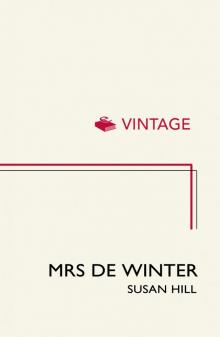 Mrs De Winter
Mrs De Winter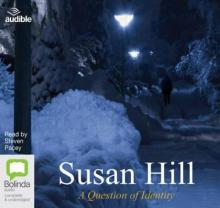 A Question of Identity
A Question of Identity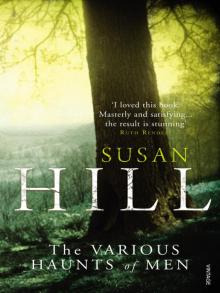 The Various Haunts of Men
The Various Haunts of Men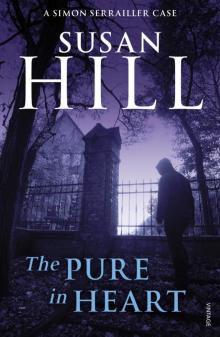 The Pure in Heart
The Pure in Heart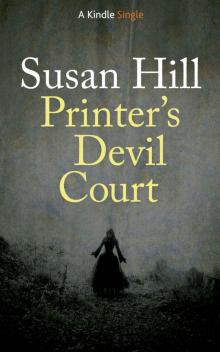 Printer's Devil Court
Printer's Devil Court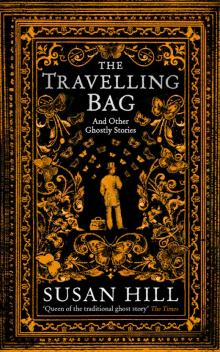 The Travelling Bag
The Travelling Bag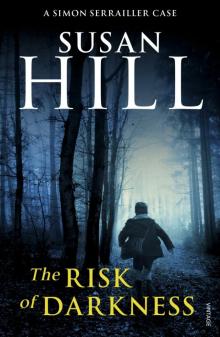 The Risk of Darkness
The Risk of Darkness A Kind Man
A Kind Man Black Sheep
Black Sheep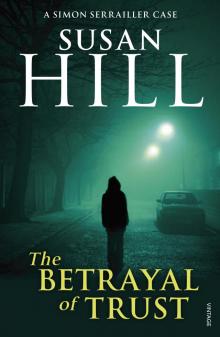 The Betrayal of Trust
The Betrayal of Trust The Service of Clouds
The Service of Clouds Betrayal of Trust
Betrayal of Trust The Small Hand
The Small Hand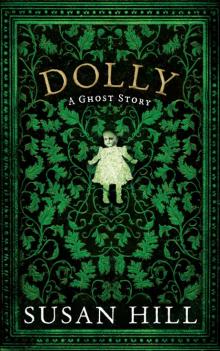 Dolly
Dolly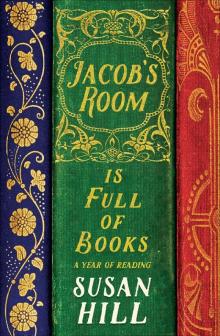 Jacob's Room Is Full of Books: A Year of Reading
Jacob's Room Is Full of Books: A Year of Reading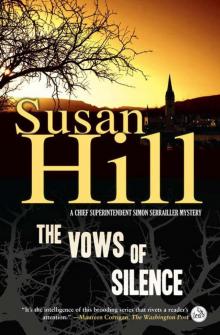 The Vows of Silence
The Vows of Silence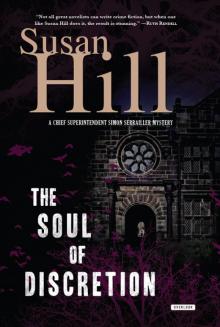 The Soul of Discretion
The Soul of Discretion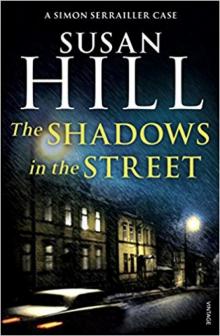 The Shadows in the Street
The Shadows in the Street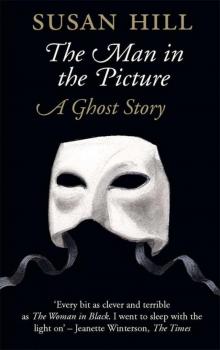 The Man in the Picture
The Man in the Picture Air and Angels
Air and Angels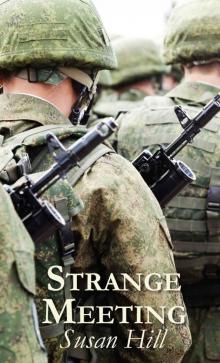 Strange Meeting
Strange Meeting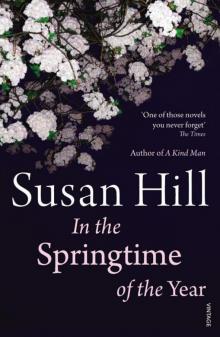 In the Springtime of the Year
In the Springtime of the Year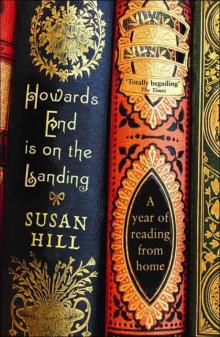 Howards End Is on the Landing: A Year of Reading From Home
Howards End Is on the Landing: A Year of Reading From Home From the Heart
From the Heart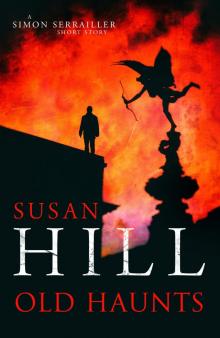 Old Haunts
Old Haunts The Mist in the Mirror
The Mist in the Mirror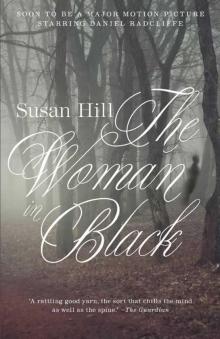 The Woman in Black: A Ghost Story
The Woman in Black: A Ghost Story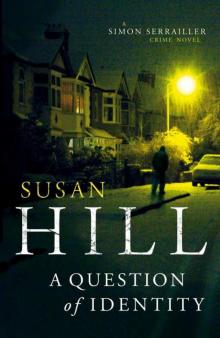 A Question of Identity (Simon Serrailler 7)
A Question of Identity (Simon Serrailler 7)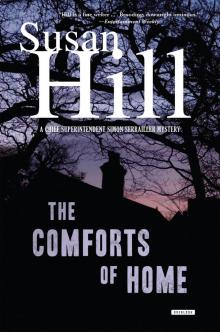 The Comforts of Home
The Comforts of Home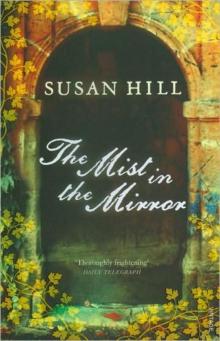 Mist in the Mirror
Mist in the Mirror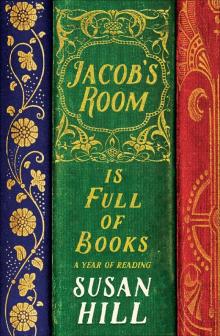 Jacob's Room is Full of Books
Jacob's Room is Full of Books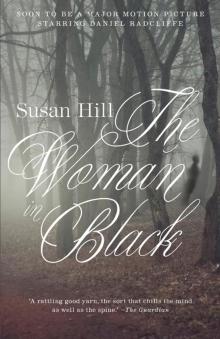 The Woman in Black
The Woman in Black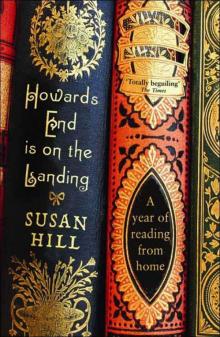 Howards End is on the Landing
Howards End is on the Landing